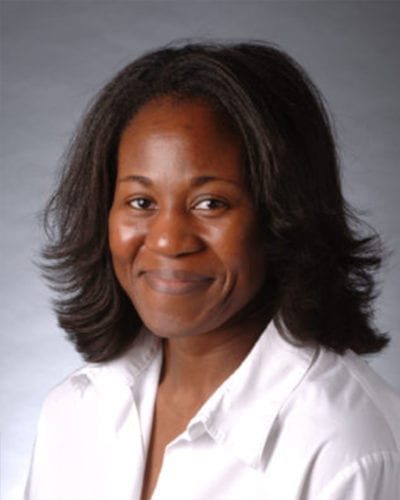A 2019 study by the Institute for Health Metrics and Evaluation found that poor diet is responsible for more deaths globally than any other health risk, including tobacco and high blood pressure, and that consuming low amounts of healthy foods, such as whole grains, and too much unhealthy foods account for one in every five deaths globally.

Maria Barnes, Ph.D., associate professor of biochemistry and nutrition at DMU, believes that’s why future health care providers should learn more about diet and nutrition.
The educators who prepare these future providers face their own constant change, challenges and opportunities thanks to advancements in scientific knowledge and technology and diversity in the ways students learn. Equipping these educators to do their work effectively is critical, since a skilled health care workforce is essential to quality of life.
Martin Schmidt, Ph.D., professor of biochemistry and nutrition, believes that’s why medical educators need to innovate and update their instructional skills – and they need the support to do so successfully.

To contribute to their respective goals, Drs. Barnes and Schmidt recently completed the Medical Educator Fellowship of the International Association of Medical Science Educators (IAMSE). The program is designed to develop “well-rounded medical education scholars with additional evidence of specialized achievement that enhances and supports career advancement,” according to the IAMSE website. It fosters proficiency in five content areas: curriculum design, teaching methods and strategies, assessment, educational scholarship and leadership.
The fellowship builds on the role that Dr. Schmidt, a biomedical researcher by training, took on several years ago as Curriculum Fellow for DMU’s College of Osteopathic Medicine. “I thought it was a great idea to apply my scientific mindset and research skills on curriculum development and assessment,” he says. “But I don’t have a doctorate in education, so I needed guidance on how to do curriculum research. The IAMSE fellowship provided that.”
Medical Educator Fellows are connected to mentors and complete 12 hours of faculty development workshops targeted to each participant’s required research/capstone project. The capstone project must demonstrate application of the content themes and be submitted as a poster or oral presentation at the IAMSE annual meeting or other approved peer-reviewed conference.
Dr. Barnes’ capstone explored ways to incorporate nutrition in medical curricula. In recent years she and Noreen O’Shea, D.O., FAAFP, a primary care physician and assistant professor of behavioral medicine, medical humanities and bioethics, have taught a nutrition course to students in DMU’s osteopathic medicine program.
“We’ve tried to incorporate as much as we could in 21 days of the course,” Dr. Barnes says. To assess student learning about diet and nutrition, she surveyed third- and fourth-year students, who are in clinical rotations, on whether they talked with patients about those topics and were confident in doing so. She also asked what would enhance their learning.
“The students wanted more. My project showed different ways we could try to incorporate nutrition in the curriculum,” she says. “I’d like to see more on nutrition incorporated in every course as a constant thread that gets students to always think about how nutrition plays a role in all systems of the body.”
For his capstone, Dr. Schmidt assessed the use of enhanced interactive video casts that second-year students in DMU’s osteopathic medicine and podiatric medicine programs review to connect their clinical-systems courses with what they learned their first year in foundational sciences courses.
“Previously, this was done as lectures, which wasn’t productive,” he says. “We let the students choose whether they wanted the lectures, video casts or both, and then I assessed their feedback and usage patterns. I found most students used both, with the video casts as a good final review.”
Dr. Schmidt’s paper on his capstone has been accepted for publication by the Journal of the American Podiatric Medical Association, and he received grants for his work from IAMSE as well as the American Association of Colleges of Osteopathic Medicine. Beyond those rewards, he says the IAMSE program provides fellows with networks of mentors, great collaborators and “a lot of useful information and advice.” He adds the knowledge it allows faculty like him and Dr. Barnes to bring back to DMU can help the University move to the forefront of medical education, especially as it plans the move to a new campus in West Des Moines next year.
“We can design the new campus to take advantage of enhanced approaches in medical education,” he says. “Our move is coming really at the right time. There’s a lot of synergy.”
Dr. Barnes agrees the IAMSE fellowship is “absolutely worth every minute.”
“I approach my lectures now in a whole different way. The content is important, but I also consider how I can engage students, make the material more interactive and bring in additional information from the literature,” she says. “I’m excited to be able to share course content with students in ways they’ll be able to use with their patients.”

